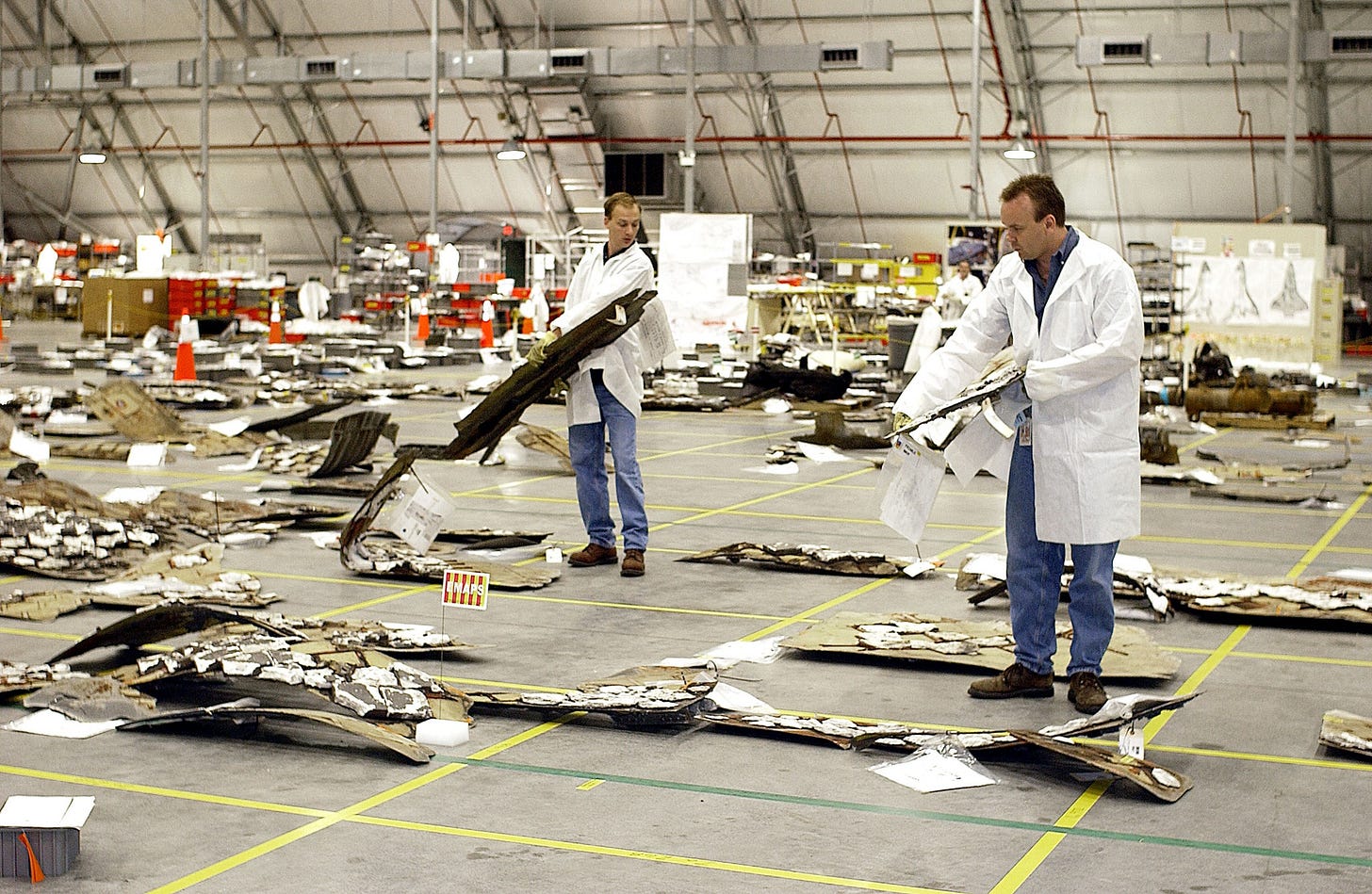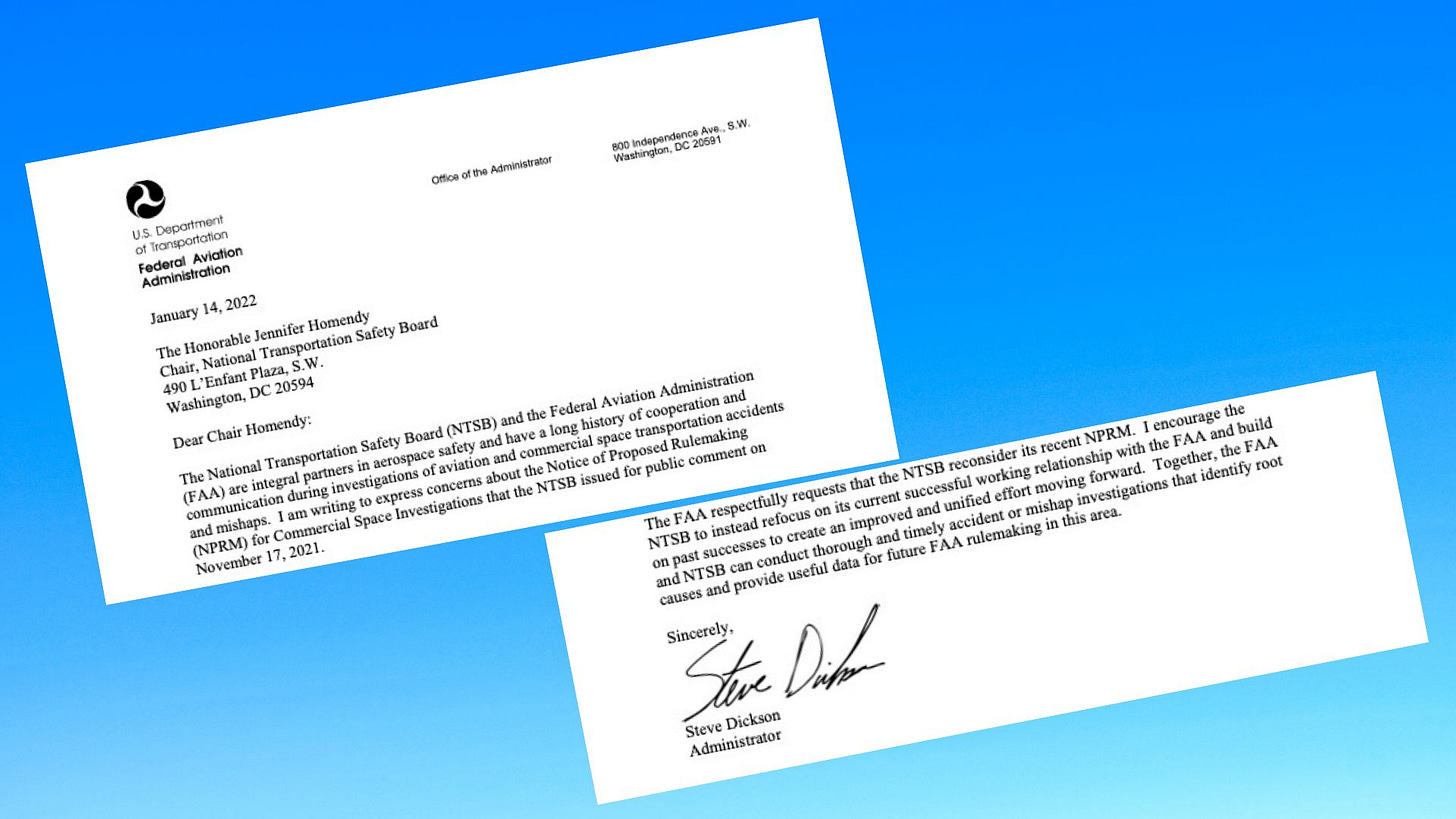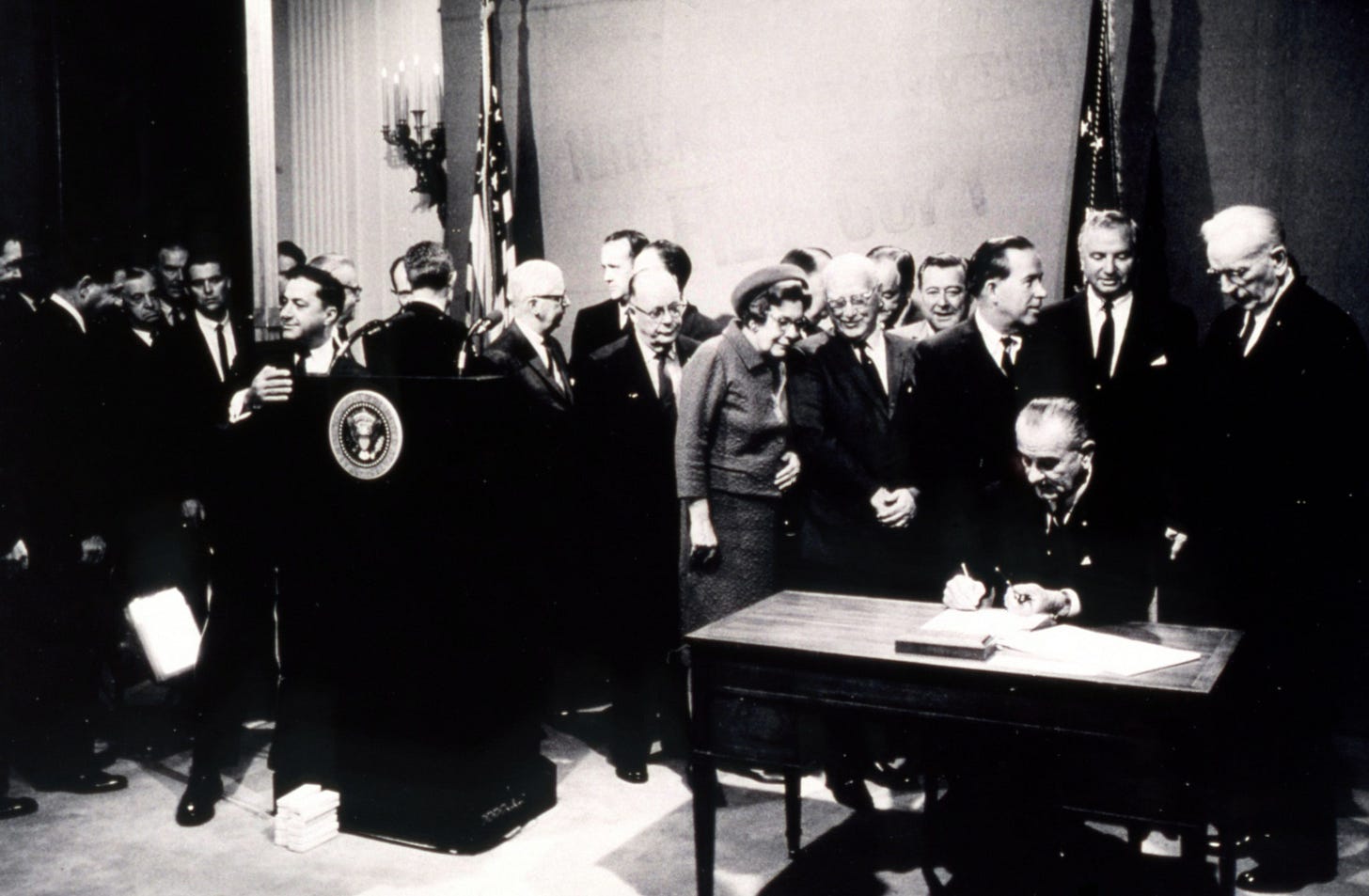
It was just a test, but Elon Musk’s big booster for his Starship malfunctioned and appeared to catch on fire Monday. There was a lot of flame and then smoke. But this was just a test. It’s unlikely SpaceX will be investigated for this incident.
Flames erupt during a test of the SpaceX booster for Starship. CEO Elon Musk tweeted, "Yeah, actually not good." (Credit: NASASpaceflight.com)
What happens in a major mishap? We’ve had two deadly shuttle accidents, Challenger and Columbia, with extensive investigations involving several agencies. Those were government programs and flights, and were investigated by the government.
BATTLING AGENCIES
Now, space is becoming commercialized with private companies flying to orbit or the edge of space. The private test vehicle for Virgin Galactic crashed years ago, sparking an investigation by the National Transportation Safety Board (NTSB).

NASA crash investigators examine debris from the Space Shuttle Columbia April 8, 2003 at Kennedy Space Center, Florida. (Credit: NASA/Getty Images)
With the pace of private space launches accelerating, there is a question about which Federal agency should be the lead investigative body. This could be a very important debate. We’ve had it before and, right now, two Federal agencies are fighting over this territory.
If you have watched coverage of a plane crash, you have most likely seen an NTSB go-team telling the media what they know. The Board is the lead investigative body in the US for transportation. NTSB is a completely independent agency. It investigates plane crashes, train derailments, pipeline explosions, marine accidents, and more. The job of the NTSB is straightforward; find the facts and make recommendations.
Space mishaps is a different story. NTSB investigated that Virgin Galactic and found that the co-pilot pulled a lever too early, causing the accident. It seems normal that NTSB was involved.

NTSB investigators at the scene of the crash of Virgin Galactic Spaceship 2 in October, 2014. (Credit: NTSB)
Last year, the NTSB decided that with all these spaceflights happening, it was time to clear up any questions about which agency should investigate space vehicle mishaps.
NTSB SENDS NOTICE
I won’t bore you with the entire Federal process. Let’s just say that the NTSB filed papers to let everyone know their teams should be investigating these space accidents.
Not so fast, said the Federal Aviation Administration, which says, this is its territory. The former Administrator of the FAA sent a letter to the Chair of the NTSB saying Congress has given the FAA authority over safety of space transportation. The FAA administrator asked the NTSB Chair, politely, to stand down and withdraw from the Federal process. It’s a turf war.

Former NTSB Chairwoman Deborah Hersman tells me, “It’s not inconsistent that organizations want to box out other agencies to protect their jurisdiction, their domain.”
So why does this matter? It’s a question of dual mandates according to experts in the space/aviation world. The FAA is the regulator. Its job is to set standards, rules, and regulations for operators. The FAA often works hand-in-hand with manufacturers. The agency was chided by investigators over the way it worked with Boeing on certification of the 737-MAX.
REGULATOR-INVESTIGATOR?
The question experts ask is, should the FAA, the regulator, be the lead in investigating incidents? Hersman, who saw this firsthand, says, “There could be issues where the FAA has some responsibility or some culpability. If you have FAA as the sole investigator it’s less likely to be critical of themselves.”
Former NTSB Chair Deborah Hersman says an independent investigator is important.
That leads us to why in 1974 Congress established the NTSB as a separate agency. It wanted an independent body to investigate accidents the produce the facts and causes to those accidents.

In 1966, President Lyndon Johnson signed the Department of Transportation Act consolidating several agencies. In 1974, Congress made NTSB a separate entity. (Credit: NTSB)
Hersman says Congress wanted, “an outside voice, an outside eye, and being able to speak the truth.” I asked the FAA why the NTSB should not be involved in these investigations. I was provided the letter from the former FAA Administrator.
It’s yet to be decided which agency will tell us what happened if one of these increasingly common spaceflights fails.
Full Throttle looks at the Transportation Transformation we are experiencing. It's free and will be sent to your email twice a week. Follow me on your favorite social platform: Twitter, Instagram, Facebook, or LinkedIn for updates during the week.
(Cover photo credit: NTSB)




